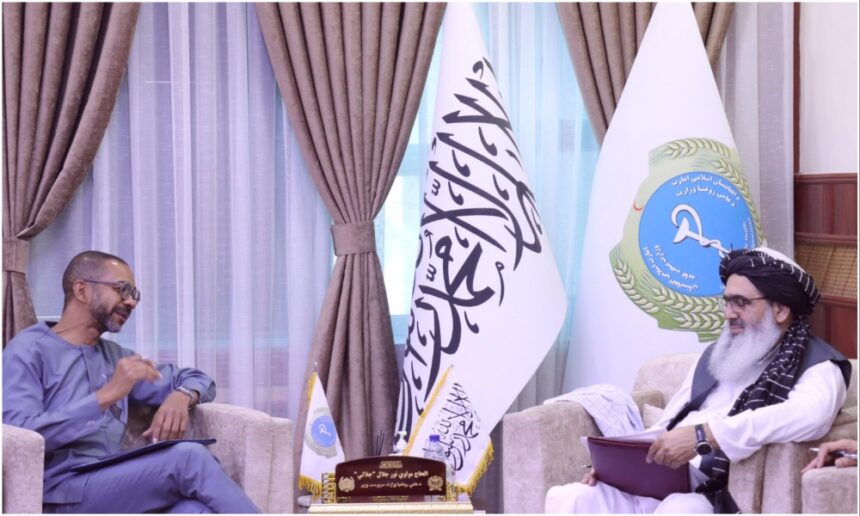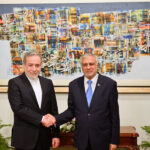In a series of high-level meetings Mawlawi Noor Jalal Jalali, Minister of Public Health of the Islamic Emirate of Afghanistan (IEA), has engaged with key international partners in a bid to bolster Afghanistan’s healthcare infrastructure.
Among those who Jalali met with were Stephen Rodriques, United Nations Development Programme’s (UNDP) representative to Afghanistan, and Koffi Kwabena Asante, the United Nations Population Fund (UNFPA) representative to Afghanistan.
Discussions between them highlighted the importance of collaborative efforts to address the country’s most pressing health challenges and ensure long-term, sustainable improvements.
The first meeting with Rodriques focused on the deployment of solar energy solutions to power healthcare centers across Afghanistan, particularly in remote and underserved areas.
Both parties explored the criteria for selecting appropriate sites for these solar-powered initiatives, underscoring the critical role of renewable energy in enhancing healthcare access.
The dialogue also covered integrated approaches to combat endemic diseases such as malaria, tuberculosis, and HIV/AIDS.
Jalali emphasized the importance of effective disease control, which, he noted, requires precise coordination and operational transparency to ensure impactful service delivery.
In response, Rodriques reaffirmed UNDP’s commitment to maintaining transparency and accountability in its interventions, pledging continued support for strengthening Afghanistan’s healthcare system.
The second round of discussions with UNFPA representatives Koffi Kwabena Asante and Andrew Saberton revolved around revitalizing the Afghan health sector, securing sustained financial support, and optimizing aid management.
Jalali stressed the need for a strategic overhaul of resource allocation to optimize international assistance and align efforts with national health priorities.
The discussions also delved into transitioning mobile health teams into permanent centers to expand healthcare access, as well as enhancing service delivery in line with the ministry’s health policy.
Jalali reiterated the importance of transparency in resource management to ensure the efficacy and sustainability of healthcare services.
Saberton commended the Afghan government’s commitment to these principles and assured that UNFPA would continue to provide vital resources to improve health outcomes in Afghanistan.
Both meetings highlighted the shared vision of fostering greater transparency, accountability, and long-term sustainability in Afghanistan’s healthcare system.
Through strategic collaborations with UNDP and UNFPA, Jalali aims to drive impactful reforms that will improve healthcare access and outcomes across the country.
The commitment of both organizations to supporting Afghanistan’s healthcare sector underscores the importance of international partnerships in tackling complex health challenges and ensuring the well-being of the Afghan people.













